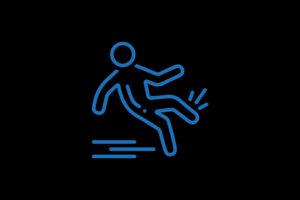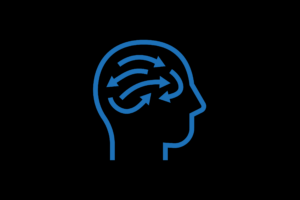We all have bad experiences at times, and usually we can move on from these experiences sometimes with a bit of help from others, for example by talking about what happened or finding a way to make ourselves feel safe again.
Sometimes the feelings we have during these difficult experiences can stay in our bodies, which means that every time something reminds us of them we feel the same things again. These reminders might be going to the same place, something sensory such as a sound or a smell, or anything really. It’s important to know that we might not always be aware of these reminders, all we may know is that we don’t feel safe.
Things that result in these traumatic memories can be one off events that make us feel unsafe and like our life might be in danger, or it can be lots of repeated things that might feel small by themselves but over time they make us feel unsafe.
An example of this can be feeling like you have to mask who you really are, which sometimes people do at school, home or in other places. Always worrying about what people might think about you or that they might reject you, can lead to feeling unsafe and this feeling gets stored in your nervous system.
School trauma is something that people are becoming more aware of, but it might be that adults around you didn’t know much about this if school is something you have found hard. Things that can be difficult at school include:
- behaviour systems, especially those that don’t seem fair
- sensory overwhelm from all the noise, lights and people, are very difficult to explain to other people – especially because it often looks as though everyone else is happy.
The first thing to know about trauma is that it completely makes sense. Our brains and nervous system are designed to keep us safe so if something does remind us of a time when we felt threatened they react to protect us by using fight, flight, freeze or fawn responses. So someone might argue, run away, hide or be very quiet and do everything they can to make sure they don’t get into trouble. If you sometimes do these things and then afterwards you don’t really understand why, then please reassure yourself that your survival response is doing its job to look after you.
However sometimes these responses happen when you don’t want them to. For example, you might find new adults make you feel unsafe because of previous experiences and it is making some situations difficult. Maybe it means you don’t feel comfortable at a club you really want to take part in. It’s up to the adults around you to understand why you might feel this way and to work with you to find ways to help you feel safer. It’s important to note here that even if they know you are safe, it’s how you actually feel that matters.
Trauma memories can be processed and you can learn to feel safe in different situations. Ways to help with this include stopping the traumatic thing from happening. For example not going to school might mean you can be with people you can be yourself with and therefore not have to mask as much.
Processing your traumatic experiences can mean telling someone what happened, writing it down, or talking to other people who have similar feelings to you. If you can, start by telling someone you trust about some of these experiences, but only when you feel comfortable to do this.
Written by Kirsteen Wilshere, neurodivergent adult and social worker
The Mind is a Muscle
Most of the organs in our bodies function automatically. But we choose when to use our muscles, how long we use them for and how intensely we use them.
It is the same with our minds. We choose when, how hard and for how long we put them to use.
Just like a muscle, the mind can become tired and work less effectively, which means it needs rest to get back to normal. If a muscle works too hard, it can become worn down.
In the same way, our minds can become worn down either by a single, huge thing that happens, or through lots of small things over time, without having enough recovery time.
Things you used to find easy may become harder and you may want to do things, but feel unable to. This can be a really upsetting and difficult experience.
When this happens, it is really important to have time to recover, as trying to do more usually makes things worse.
There are some things that may have led to this happening which can be avoided in the future, by doing things like:
- Stopping contact with people who you aren’t comfortable around.
- Agreeing with your parents that they won’t make you go back to school, even if you start to feel happier.
- Making an agreement with the people around you that they will let you quit things without asking ‘Are you sure?’ and without giving you a lecture about giving up too easily.
But there may also be some things you need to not do for now, which you can come back to when you are ready:
- Not having people you don’t know well or feel comfortable around coming into your home.
- Reducing demands in your life. Demands can range from doing activities you regularly take part in, to family visits, to doing chores.
- Deciding not to do so many GCSEs in one go
- Deciding things need to change at school before you go back. This could also mean looking for a different school that supports you better, or looking into other forms of education.
When you are recovering, it is really important to spend time doing things you enjoy, giving yourself enough time off to recover from activities and spending time with people who help you feel good about yourself.
Written by Simon Cramer, autistic adult



